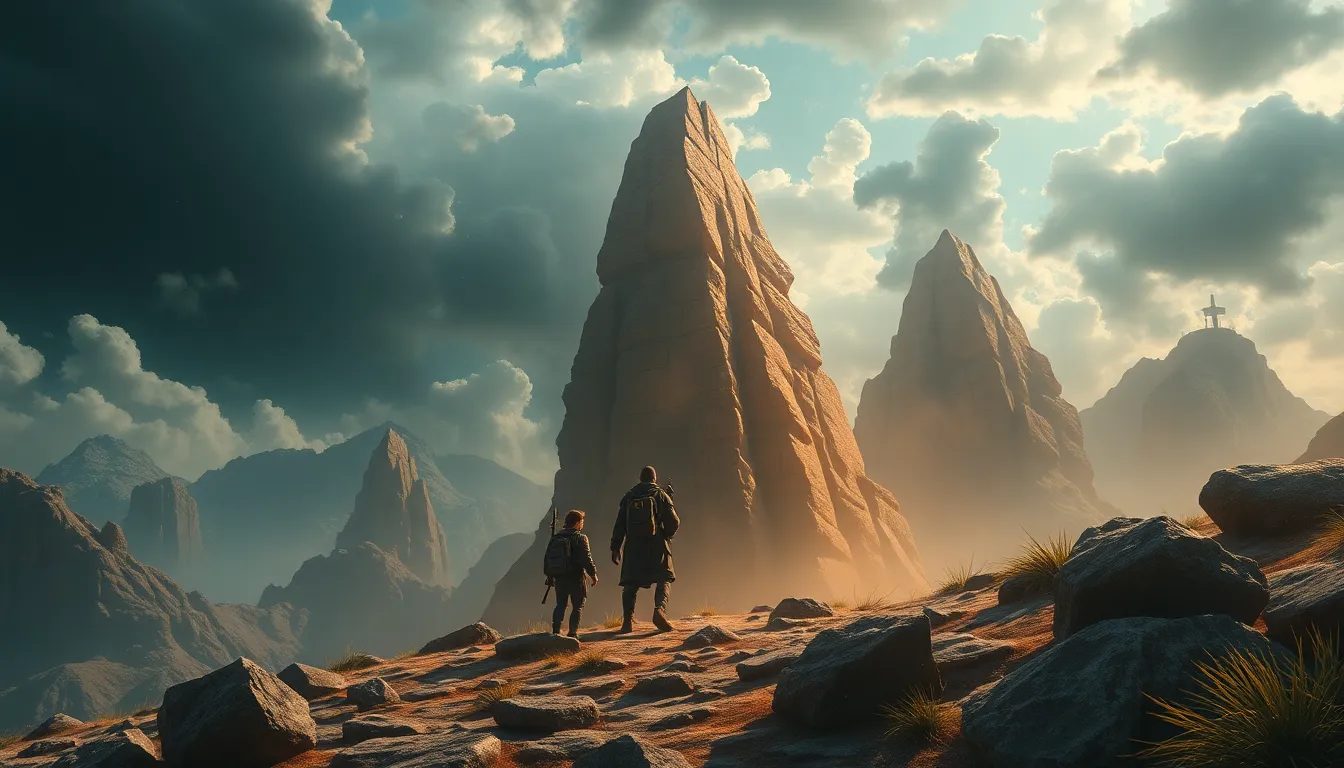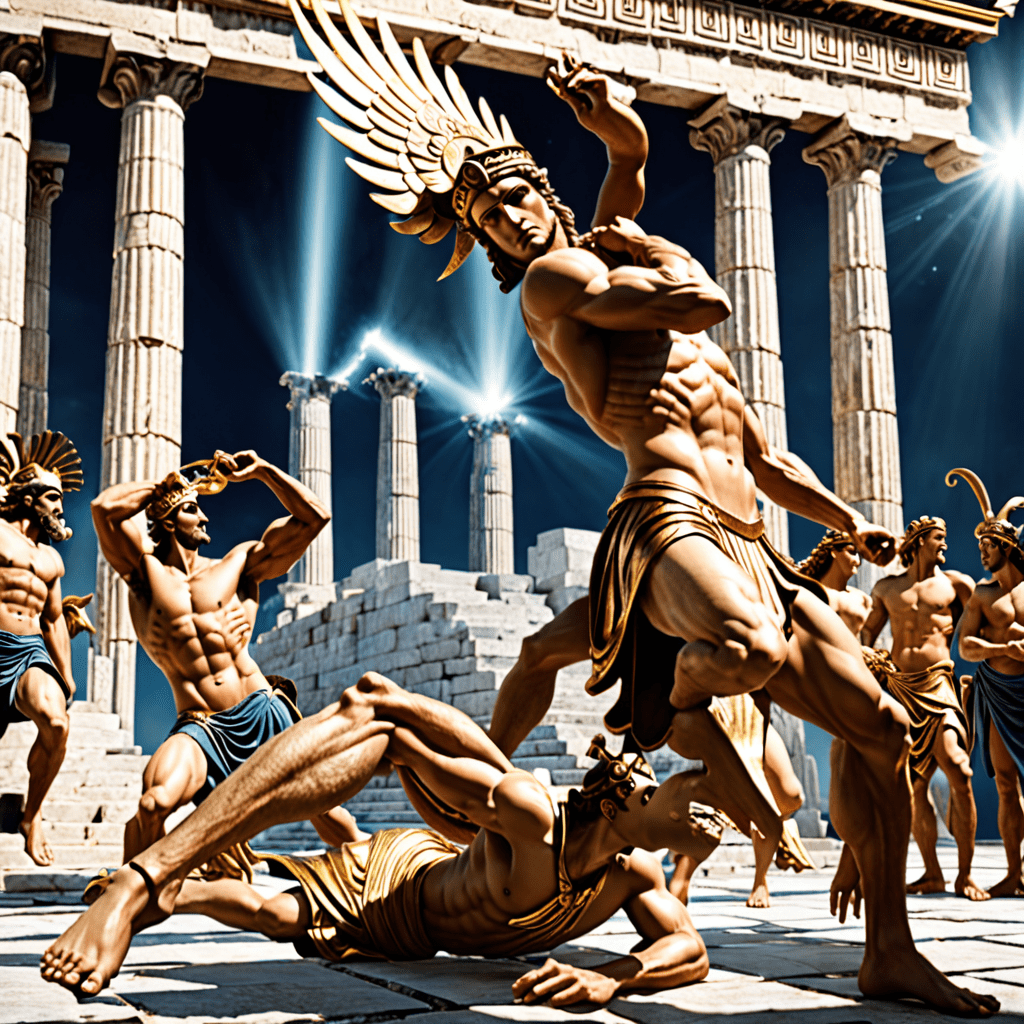The Myth of the Great Journey: Morality in Adventure
I. Introduction
The concept of the “Great Journey” has long captivated the human imagination, representing not only a physical voyage but also a profound metaphorical exploration of self and morality. In adventure narratives, characters embark on journeys that challenge their beliefs, ethics, and values, often leading to significant personal growth. Understanding the interplay between adventure and moral lessons is crucial, as these narratives reflect societal values and shape individual moral frameworks.
II. Historical Context of Adventure Narratives
Adventure literature has evolved over centuries, reflecting the changing values and moral dilemmas of society. From ancient epics to modern tales, adventure stories have often intertwined with lessons of morality.
A. Overview of adventure literature through the ages
Adventure narratives can be traced back to ancient civilizations, where epic tales such as the “Epic of Gilgamesh” and Homer’s “Odyssey” set the stage for the hero’s journey. These stories not only entertained but also provided moral guidance.
B. The role of morality in classic adventure tales
In Homer’s “Odyssey,” Odysseus faces various moral challenges that test his loyalty, cunning, and fortitude. His journey home is not just a physical return but also a quest for moral redemption, illustrating the importance of virtue in overcoming adversity.
C. Evolution of the adventure genre in modern storytelling
In contemporary literature and media, adventure narratives have expanded to include diverse characters and complex moral dilemmas, reflecting a broader range of human experiences and societal issues. This evolution has allowed for a more nuanced exploration of morality.
III. Defining Morality in Adventure
Understanding morality within adventure narratives requires a philosophical overview of what morality entails and how it manifests in storytelling.
A. What is morality? A philosophical overview
Morality can be defined as a set of principles concerning the distinction between right and wrong or good and bad behavior. In adventure narratives, this often translates into characters facing dilemmas that force them to choose between competing values.
B. Types of moral dilemmas faced by characters in adventure stories
- Choosing between personal gain and the greater good
- Deciding whether to act with vengeance or forgiveness
- Balancing loyalty to friends with the need for justice
C. The impact of cultural values on moral interpretations in adventures
Cultural contexts significantly influence how morality is portrayed in adventure narratives. Different societies may emphasize various virtues, leading to diverse interpretations of what constitutes a moral choice.
IV. The Hero’s Journey: A Framework for Morality
Joseph Campbell’s concept of the Hero’s Journey provides a framework for understanding how morality is woven into adventure narratives.
A. Breakdown of Joseph Campbell’s Hero’s Journey
The Hero’s Journey consists of several stages, including:
- The Call to Adventure
- Crossing the Threshold
- The Road of Trials
- The Return
B. The moral implications of each stage of the journey
Each stage of the Hero’s Journey presents unique moral challenges for the protagonist, influencing their character development and ethical decisions throughout the narrative.
C. Case studies: Heroes in literature and film
- Frodo Baggins in “The Lord of the Rings”: His journey explores themes of sacrifice, friendship, and the burden of power.
- Katniss Everdeen in “The Hunger Games”: She grapples with moral dilemmas around survival, loyalty, and resistance against oppression.
V. The Role of Antagonists in Moral Lessons
Antagonists play a crucial role in shaping the moral landscape of adventure narratives, offering challenges that force heroes to confront their values.
A. Understanding the importance of villains in adventure narratives
Villains often embody the opposite of the hero’s values, providing a foil that highlights the hero’s moral journey.
B. Moral complexities of antagonists
Many modern stories feature sympathetic villains, whose motivations may resonate with the audience, prompting a reevaluation of moral absolutes.
C. How antagonists challenge heroes’ morals and growth
The conflicts between heroes and antagonists often result in significant moral growth for the protagonists, as they must navigate complex ethical landscapes.
VI. Adventure as a Reflection of Societal Morality
Adventure tales often mirror the societal values of their time, serving as a reflection of ethical standards and cultural norms.
A. How adventure tales mirror societal values and ethical standards
Through their narratives, adventure stories often address contemporary issues, providing insights into the moral fabric of society.
B. The impact of historical events on the portrayal of morality in adventures
Historical contexts, such as colonialism or war, significantly influence the moral themes explored in adventure narratives, illustrating the evolving nature of ethics.
C. Case studies: Adventures during different historical periods
- Colonial adventures that reflect imperialist ideologies
- Post-war narratives that explore themes of redemption and recovery
VII. Adventure in Modern Media: Morality in Video Games and Films
The rise of interactive storytelling in video games and the complexity of moral choices in films have transformed the portrayal of morality in adventure narratives.
A. The rise of interactive storytelling and morality systems in video games
Games like “The Witcher” and “Mass Effect” allow players to make choices that impact the narrative, creating a personal moral journey.
B. Analysis of moral choices in popular films and series
Films such as “The Last of Us” and “Indiana Jones” illustrate the moral complexities faced by characters as they navigate their adventures, often with profound consequences.
C. The influence of audience participation on moral narratives
Audience engagement in interactive formats leads to a diverse interpretation of morality, highlighting the subjective nature of ethical decision-making.
VIII. The Psychological Impact of Adventure on Morality
Engaging with adventure narratives can have a lasting impact on individuals’ moral frameworks and empathy levels.
A. How adventure experiences shape individual moral frameworks
Experiential adventures, whether in literature or real life, can lead to significant shifts in personal ethics and values.
B. The role of empathy in adventure narratives and its effect on the audience
Adventure stories often evoke empathy, allowing audiences to connect with characters’ struggles and moral dilemmas.
C. Adventure therapy: moral lessons learned through real-life adventures
Adventure therapy utilizes outdoor experiences to teach valuable life lessons and foster moral growth in participants.
IX. Critiques of Morality in Adventure
While adventure narratives often convey moral lessons, they can also fall into oversimplification and other pitfalls.
A. Examining the oversimplification of moral choices in adventure narratives
Many stories present clear distinctions between good and evil, which may not accurately reflect the complexities of real-life moral dilemmas.
B. The potential for reinforcing stereotypes and biases
Adventure narratives can sometimes perpetuate harmful stereotypes, particularly regarding gender and race, which can skew moral interpretations.




